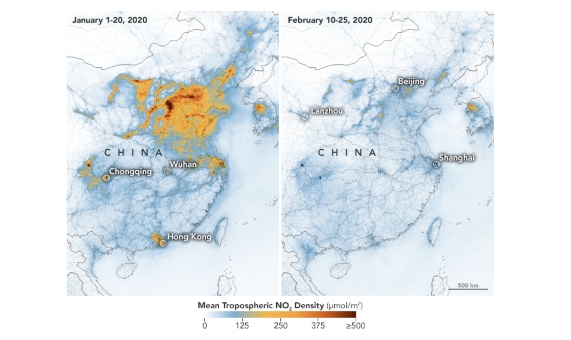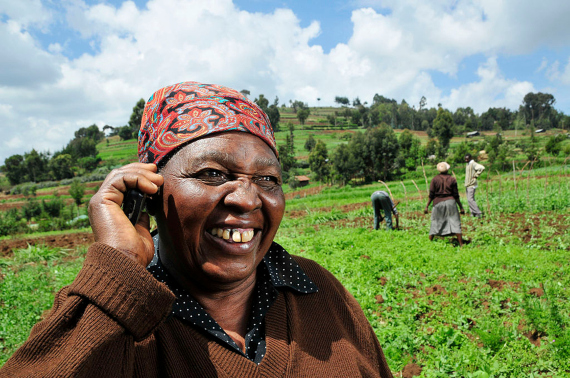The environmental organization World Wildlife Fund (WWF) has promoted turning off the lights for the planet since 2007, an act that has expanded to more than 187 countries. It has become an established movement to defend the planet against climate change. Peter Kalmus, a scientist specializing in climate from NASA’s Jet Propulsion Laboratory, argues that the expression climate change should be replaced with climate collapse because, as he explains in an essay published in the latest OpenMind book, “By 2018, warming of about 1.2°C beyond the preindustrial baseline has already caused unacceptable impacts, but these impacts will worsen precipitously as warming proceeds.”
In terms of the margin to take action to stop this collapse, the Intergovernmental Panel on Climate Change (IPCC) estimates that we have just 11 years to prevent the situation from becoming irreversible. Thus, the expression climate emergency seems much more appropriate, and essential to raise awareness of the importance of taking measures to prevent ecosystem destruction. All living creatures that inhabit the planet have started to suffer the consequences. In 2020, the United Nations Decade on Biodiversity will conclude. This initiative aims to combat the loss of species and biological wealth that has led to an alarming situation. Since 1970, populations of vertebrate species have declined by an average of 60 percent, according to WWF’s Living Planet Report.

In 2020, Earth Hour will be held in exceptional circumstances: the fight against the COVID-19 virus. It has demonstrated how transforming our routines has a direct impact on the planet’s ecosystem. According to data from the European Space Agency, surface particles have reduced between 20 percent to 30 percent in parts of China and northern Italy. The Copernicus Sentinel-5P satellite confirmed the reduction in pollution after both countries applied the quarantine measures, transforming routines and activity in the countries.
This year, the messages to save the planet will be sent from balconies, just as WWF has requested in its campaign “Turn off the light. Everything will be okay.”
In addition to the outreach campaigns and collective acts of commitment to the planet, science and technology offer innovative solutions with which we can definitively shift toward more sustainable production, consumption and development.
Four fundamental transformations to achieve sustainable development
Emission reduction
In the year 2050, society on Earth will be primarily urban, as 68 percent of the total population will live in large cities, which the United Nations considers “a new challenge for urbanism.” A new model of sustainability that makes it possible to save energy, reduce consumption and protect the environment is imperative for future urban life. Solutions like zero emission buildings that even export energy, or amphibious cities that have the capacity to be self-sustaining and produce ocean crops are already real or prospective alternatives.
In addition to our cities, the way we get from one place to another is also fundamental in this race to reduce emissions. In 2018, commercial aviation was responsible for 2.4 percent of CO2 emissions, not to mention the condensation trails that retain infrared light, which contribute to global warming. Changing individual habits and opting for alternatives that produce less pollution like zero emission vehicles, and even self-driving vehicles, are also a good roadmap for the future.
Responsible telecommunications
It is estimated that 3.5 billion people use a smartphone — nearly half the world’s population — and the numbers continue to grow every day. According to data from the UN International Telecommunication Union, in 2017 mobile line subscriptions reached 98.7 percent of the population in developing countries.

Apart from the socioeconomic effect that the democratization of the use of these devices can produce, do we know what implications manufacturing each one each of these phones has on climate change? Smartphone manufacturing produces 80 percent of each device’s carbon footprint, but the mining of their components is also a severe problem, as it generates tailings that poison rivers and land. Responsible consumption, recycling the devices and putting a stop to programmed obsolescence are fundamental to mitigate the environmental effects of having good communications.
The path to responsible consumption
According to bank data, every person produces 270 kilograms of trash per year. The key to sustainable consumption is for people to play an active role in reducing the waste they produce. Product selection will be crucial to reducing the impact of every household given the climate crisis in which we find ourselves.
Innovation in the way waste is processed is another tool to fight climate change — from converting plastic into roads, recycling human urine and feces and looking for alternatives for a world without plastic.
Food that is more environmentally friendly
Our most direct relationship with the planet’s resources starts with food. Reducing animal meat or adding insects to our menu, as well as improving crops through plant nanobiotics, soil restoration or the recycling of human waste could change the climate crisis menu.
for OpenMind
Comments on this publication